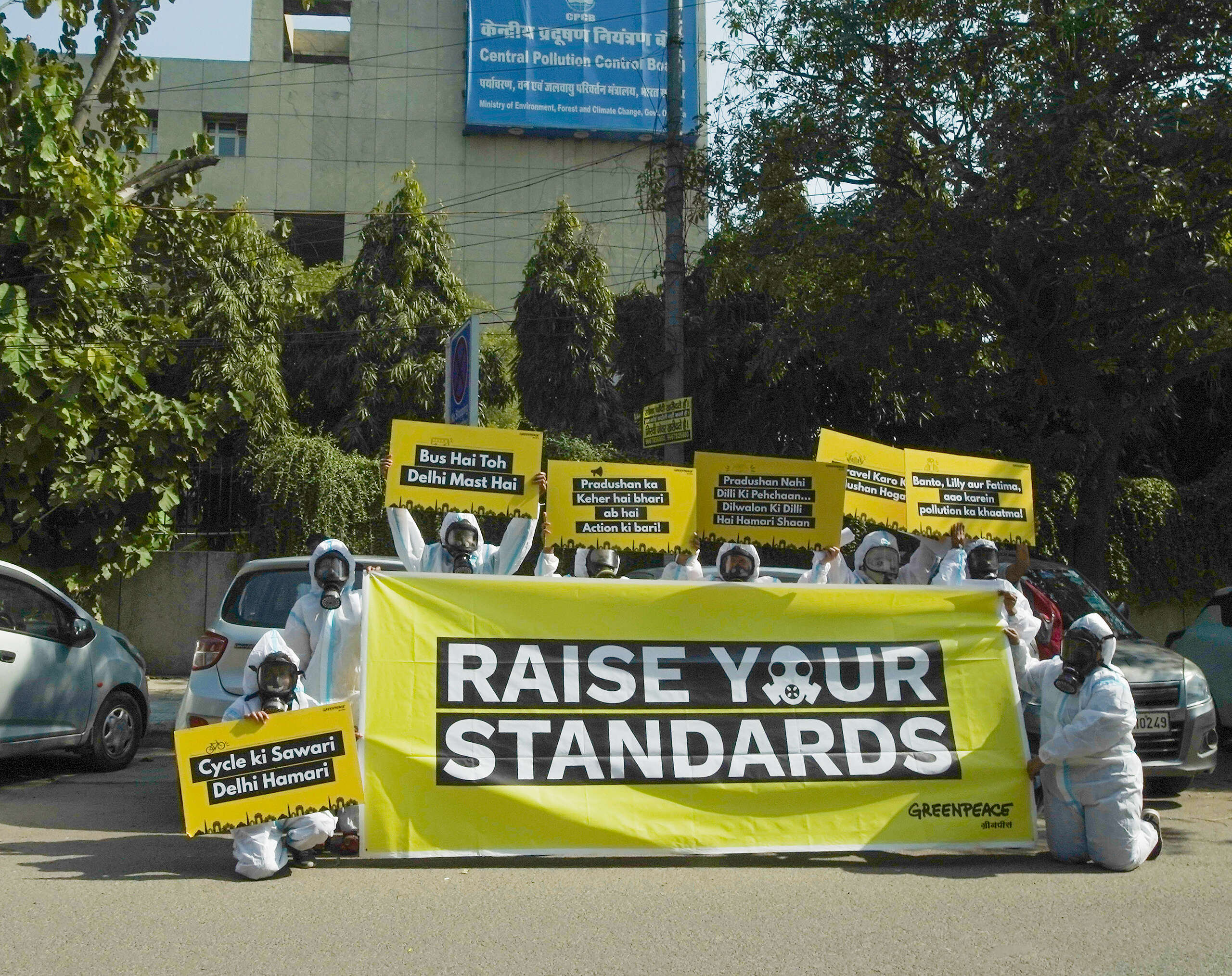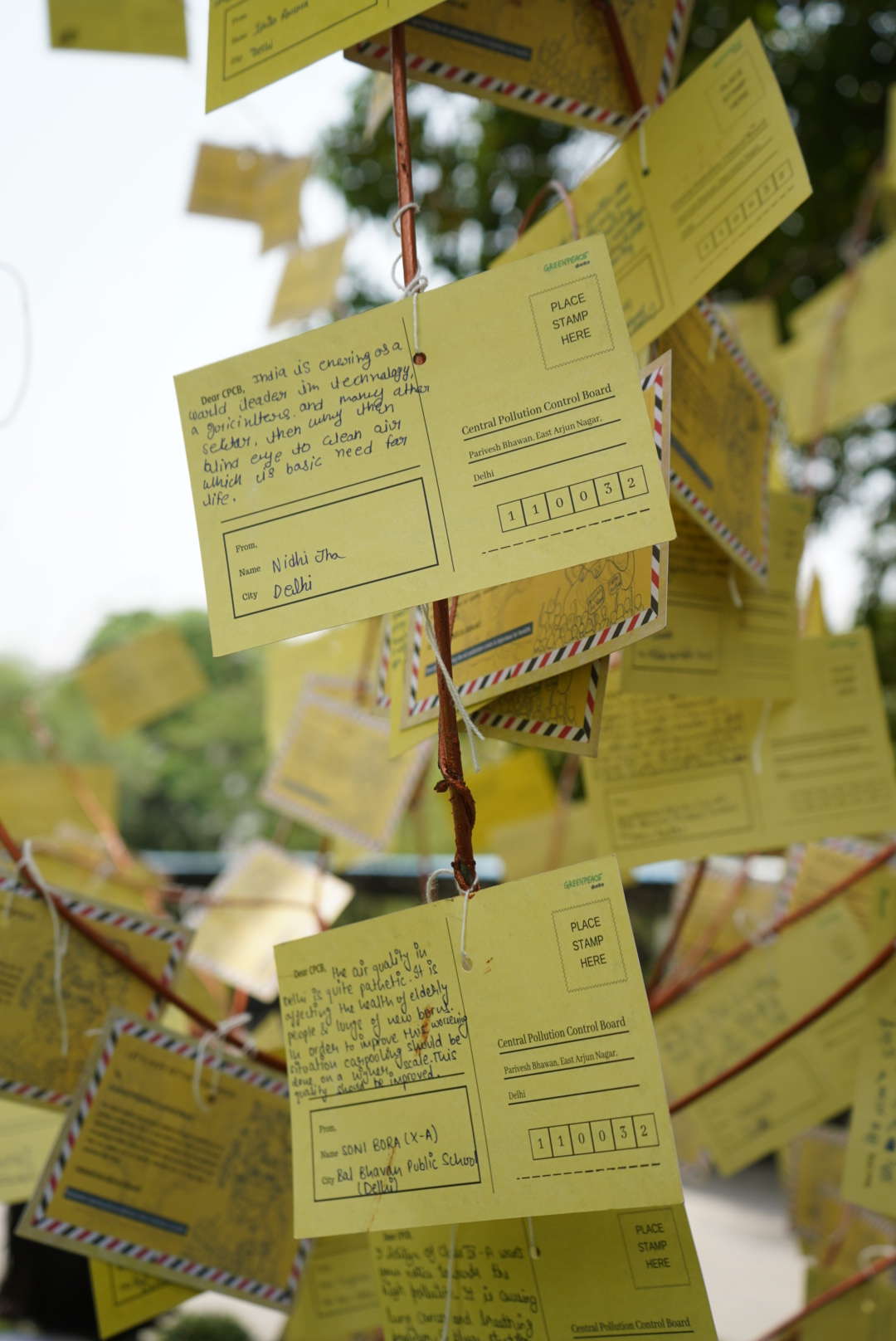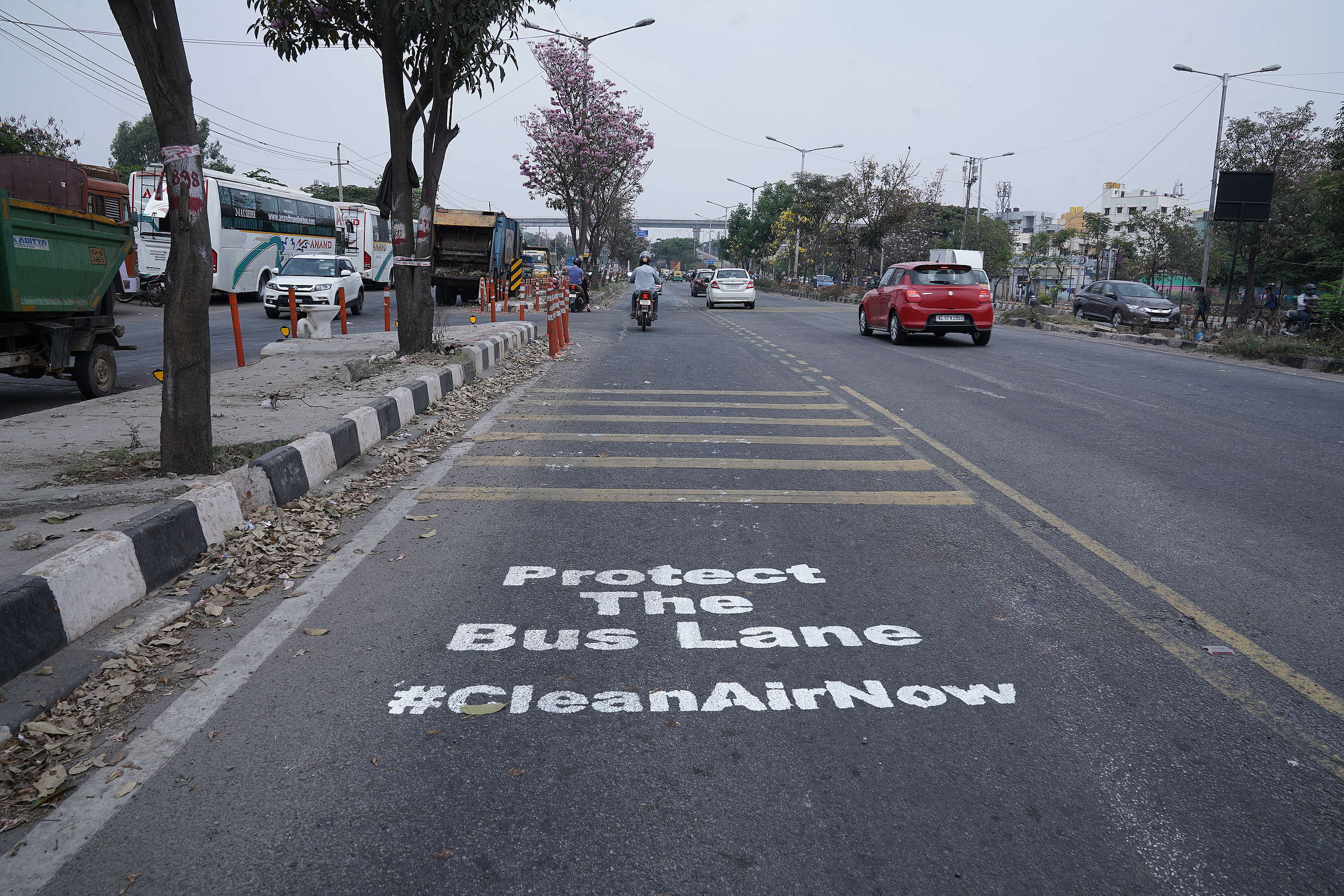22 September, 2021 – Today the World Health Organization (WHO) updated its air quality guidelines for the first time in 15 years. In 2020, air pollution in most of the world’s biggest cities failed to meet the previous WHO guidelines, a Greenpeace India analysis of IQAir data shows.
“The science is unequivocal — exposure to air pollution, even at low levels, shortens lives and has serious implications for public health. The WHO has strengthened its guidelines incorporating new advances in research, but these targets for clean air are meaningless if they aren’t addressed with government action. What matters most is whether governments implement impactful policies to reduce pollutant emissions, such as ending investments in coal, oil and gas and prioritizing the transition to clean energy. The failure to meet the outgoing WHO guidelines must not be repeated,” said Dr. Aidan Farrow, a Greenpeace International Air Pollution Scientist based at the University of Exeter in the UK.
Greenpeace India’s analysis of PM2.5 data aggregated by IQAir found that air quality failed to meet the 2021 guidelines in all of the world’s 100 biggest cities during 2020.
In Delhi, city-wide annual average PM2.5 air pollution levels exceeded the 2005 WHO guideline by nearly eightfold in 2020, the highest margin of all cities in the dataset. The city’s air quality surpassed the stricter 2021 guideline by nearly seventeen-fold. Greenpeace and the Centre for Research on Energy and Clean Air (CREA) estimate that 57,000 premature deaths in Delhi during 2020 can be attributed to air pollution exposure.
In Jakarta and Beijing, city-wide averages of annual mean PM2.5 recorded in 2020 by IQAir were approximately four times the 2005 guideline level. In Mexico City, Bangkok and Seoul, the averages of measured concentrations were double the 2005 WHO guideline level.
Even in cities where average fine particulate matter concentration did not breach the guidelines in 2020, thousands of air pollution-related deaths occured as a result of long-term low-level exposure to pollution. In New York and London, the estimated number of deaths attributable to fine particulate matter exposure in 2020 was 11,000 and 10,000, respectively, according to an analysis by Greenpeace, IQAir and CREA.
“It’s important to remember that there is no safe level of air pollution exposure. Long-term exposure to low-levels of air pollution can cause a gradual but serious deterioration of our health, resulting in diseases like lung cancer, stroke, diabetes, and, ultimately, in avoidable deaths. Air quality policies must prioritize health and strive for continuous air quality improvements in all places,” said Dr. Farrow.
“We have all the economically viable tools we need to solve the air pollution crisis. In most parts of the world, it is more-cost effective to develop renewable energy sources, such as wind and solar, than to keep burning coal, oil or gas, even before taking the economic burden of air pollution into account. At this point, addressing air pollution is a question of political will, not technology,” said Avinash Chanchal, air pollution campaigner at Greenpeace India.
Notes:
Media briefing is available here.
Table: Annual mean PM2.5 near-surface concentration in 2020 in the 100 most populous cities worldwide. In all cities with available data air quality exceeded the WHO’s 2021 air quality guidelines.*
*The data show city-wide averages based on sensor data aggregated by IQAir and provided by IQAir upon request. Data can be queried manually at https://www.iqair.com/world-most-polluted-cities (last accessed 2021-09-16). Place names in the table reflect the data sources used and do not imply any opinion by Greenpeace.
1In 8 of the 100 cities, PM2.5 data for 2020 was unavailable due to a lack of government monitoring or disclosure.
2Greenpeace South East Asia, 2021, Methodology: Estimating the cost of air pollution in world cities (2020). Available at: https://www.greenpeace.org/static/planet4-southeastasia-stateless/2021/02/ef76f49b-methodology_-revealing-the-cost-of-air-pollution-in-world-cities-annual-results-for-2020.pdf [Accessed August 18, 2021].
3Greenpeace South East Asia, 2021, Methodology: Estimating the cost of air pollution in world cities (2020). Available at: https://www.greenpeace.org/static/planet4-southeastasia-stateless/2021/02/ef76f49b-methodology_-revealing-the-cost-of-air-pollution-in-world-cities-annual-results-for-2020.pdf [Accessed August 18, 2021].
Contacts:
Erin Newport, International Communications Officer, Greenpeace East Asia: +886 958 026 791 [email protected]
Greenpeace International Press Desk: [email protected], +31 (0) 20 718 2470 (available 24 hours)



